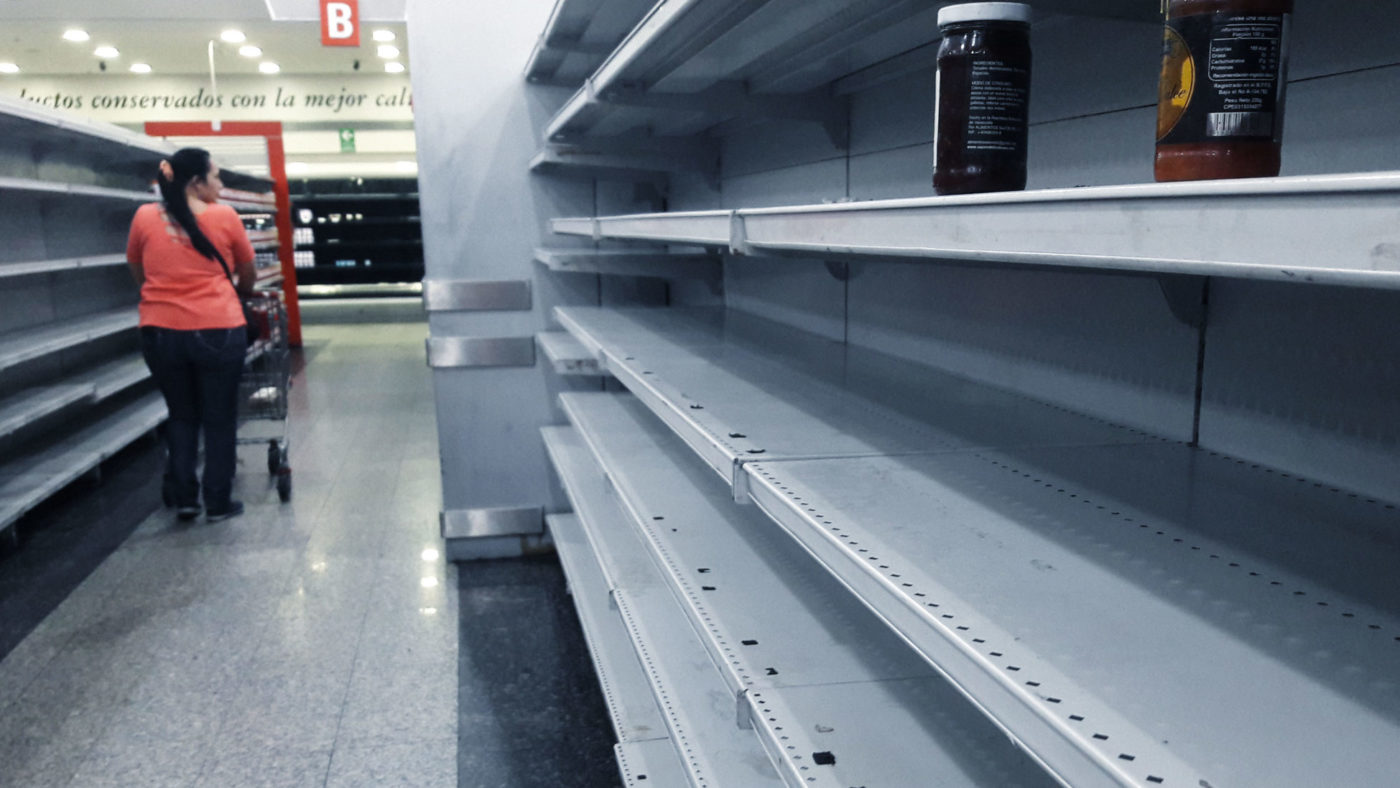Watching the rubble that Chavez then Maduro have made of one of Latin America’s richest countries – the place with the largest oil reserves in the world – can leave one overwhelmed. Where to start with the idiocy that is Bolivarian Socialism?
One sentence in the Telegraph explains things quite neatly: “One of those policies was to fix prices on 25 basic products, including beef, chicken and eggs, all of which have since disappeared from supermarket shelves.”
This is not the entire explanation: there is still room for kleptocracy, ignorance, the usual ailments of politics, as well. But the base problem is there in that sentence – non-market economies, without market prices, do not work. We must start with those basics and only then can we bend the world to our will.
Of course, you may not particularly want to change the world and I certainly lean to doing so very much less than the 99% of the population considered to be to the left of me. But even those who would change outcomes must still start with those basics, markets and prices.
For those prices are not just arbitrary numbers. Nor are they the oppressions of capitalism, the plutocrats or The Man. They’re information about reality. A market-clearing price – which is what a market price will become rapidly – is one which balances supply of a product with demand. And that’s all it is.
Fixing prices, on the other hand, inevitably means surplus or shortage, glut or dearth. If prices are set below the market price then, supply falls and demand rises, leading to the kind of shortages we see in Venezuela. Set the price too high and you end up with a glut of the EU butter mountain variety. As for setting a price at the right market level, good luck trying.
Of course, Venezuela has gone to extremes here, prices for those food items have been set so low that no one at all can produce at them. Therefore they don’t and now there is no food. Instead, everything happens over on the black market where prices are simply what prices are.
The thing is, there are perfectly manageable ways of giving Venezuela’s poor the better life they so understandably desire. The government could tax the rich to give to the poor, or use its oil revenue to provide a top-up to low incomes.
This is not to say that such redistribution must or even should happen, but to point out that it is a far better way of increasing living standards than by messing with market mechanisms.
There are lessons here for the UK too. There are those, for example, who argue that a rental cap is a viable a solution to our housing woes. But fixing the rent below the market clearing price – which is where it will be – inevitably means a shortage of such housing.
England has, on any one day, perhaps 5,000 rough sleepers and 1.1 million households on the social housing waiting list. That suggests rather a severe shortage of below market priced housing. A solution might be to lift the restrictions upon planning permissions in order to increase supply and bring down the market price. It might be to give poor people money – housing benefit – to pay the market price. Whatever we choose, all that would happen if rents were capped is that we’d end up with a dearth of housing.
There’s a similar line of thinking behind calls to increase the minimum wage. It’s a policy that reduces the demand for higher-priced labour while also increasing its supply, resulting in a surplus of available labour, also known as unemployment. Perhaps we do want those in work to have higher incomes – if so a better solution is transfers such as working tax credits, not lumping more costs on employers.
Again the lesson for leftwingers is, don’t mess with the markets, don’t try to fix prices, but work with the proceeds of the market economy to help the worst off in society. The other great advantage here is that the public get to see how much this social democracy really costs us.
Rigging markets disguises the true costs. Social housing ignores the opportunity costs of using our resources in that manner. The minimum wage seemingly makes business pay while in reality it’s low income consumers and low wage workers who do.
Strip our redistribution of this mummery and we see the real bill. Perhaps we’re not willing to pay £24 billion in housing benefit. That means we’re not willing to carry the costs of that pledge for better housing, however we organise the system to do so. Changing and disguising where costs arise doesn’t reduce the costs, actually it increases them.
Venezuela’s underlying mistake was messing with markets. If we wish to avoid the same error then we’ve got to create our welfare state the other way, taxing and then spending. And if we the people decide that we don’t want to pay the bill, well, tant pis to social democracy then.


